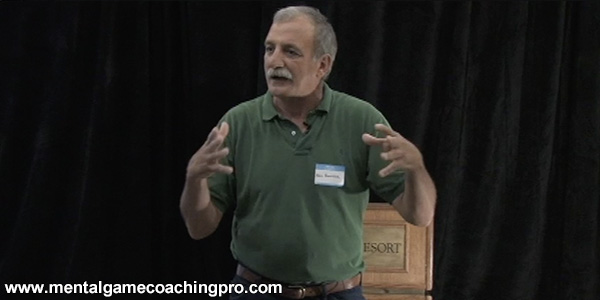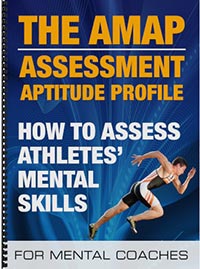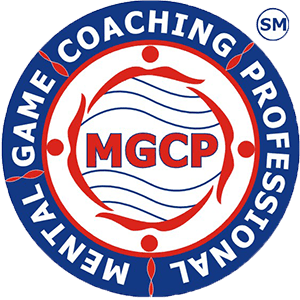
How to Improve Credibility As a Mental Coach
I just finished reviewing a video of Ken Ravizza speaking at the 2017 AASP conference on gaining entry with teams…
Ken said that you must know the culture and history of the team.
Is it a winning team? Do they have a losing history? Have there been a lot of coaching changes?
He believes that knowing the culture of the team can help you gain entry and build credibility with the athletes and coaches.
Another interesting thing Ken said in his presentation was about working with teams that you are not familiar with the sport…
Ken said, “Do not to fake it.”
Be honest and tell your prospect that you are not familiar with their sport.
At some point, you will be asked by athletes or coaches from teams that are not your specialty or out of your wheelhouse.
I remember the first time I was asked to work with a motocross athlete in 2004. At that time, I didn’t know a thing about motocross…
The athlete’s dad asked me:
“Have you ever worked with motocross racers?”
I told the father that I never worked in motocross and the closest sport I worked in was BMX. But I was willing to learn the sport and the same mental skills I teach golfers apply to motocross racers.
I was hired and I learned a ton about the sport–at the same time I was able to help this motocross racer win a national championship, which helped me gain entry to this sport.
Don’t pretend to know the sport if you don’t. Be honest and tell the athlete or coach your experience with the sport.
However, I teach MGCP students that you must research and learn the sport if you are unfamiliar.
If a ball player says, “I’m doing well in the bullpen, but I can’t do it in a game.” You can’t get stuck on terms, such as “bullpen” you don’t know, as it will interfere with the coaching process.
How do you build credibility in a sport you have not worked in?
Bottom line… you must help the athletes you do get a chance to work with. You don’t have to start at the pro level…
Potential clients wanted to know who I’d worked with.
Did I help these athletes improve? How much did these players improve? Would my students vouch for me?
These potential clients would never ask me what courses I took in graduate school or what my credentials were.
If you help athletes succeed–you do not have to help Tiger Woods win again–the power of this can multiply.
If you want to learn all my strategies to help improve your reputation and build credibility as a mental game coach, I suggest you check out one of our newest mental coach programs, “Improving Credibility”:
Related Mental Coaching Articles
- Ken Ravizza on the Importance of Observation
- 4 Tips to Help Athletes Stay Committed to Mental Training
- 5 Challenges for Sports Psychology Experts
Mental Coach Assessment System

If you help athletes improve their mental game and want to be more effective with helping them build mental toughness, but don’t have a proven system for identifying and assessing your athletes’ mental game, I can help you…
I view this assessment as a way to “interview” athletes before they come in for coaching–and to improve organization and speed up the coaching process. Today, I call it the Athlete’s Mental Aptitude Profile or AMAP for short. Now you too can learn how to use the AMAP Assessment system with your athletes…
The AMAP System teaches you how to easily identify your athletes’ mental game challenges, what mental game issues to look for when reading the AMAP, and how to do a summary of the AMAP. In addition, you’ll also get follow up questions to ask and how learn about how to drill down on relevant topics.
